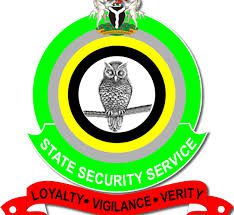The minister of Transportation, Senator Said Ahmed Alkali, has revealed that the first-ever National Land Transport Policy has been validated by stakeholders and approved by the Federal Executive Council (FEC).
The minister stated this at the 7th National Conference of the Chartered Institute Of Transport Administration of Nigeria (CIOTA) in Abuja on Tuesday.
Senator Alkali also said, “upon my appointment as the minister, I set it as one of my critical objectives and with commitment, perseverance, cooperation of all the major stakeholders, of which CIOTA and its key members made significant contributions, and finally, with the support of Mr President, we were
able to get the policy approved at the Federal Executive Council.”
Speaking further on efforts to reposition transportation in Nigeria, the minister said: “the successful test flight of logistics drones developed by engineers at the Nigerian Institute of Transport Technology (NITT), Zaria, exemplifies our commitment to indigenous innovation. We are positioning Nigeria to harness smart mobility solutions, intelligent transport systems (ITS), and blockchain-enabled logistics to enhance transparency and sustainability.”
While speaking at the event, the governor of Kaduna State, Senator Uba Sani, said the state transport systems have been overhauled for effective transport systems.
According to him, “When my administration assumed office about two and half years ago, we placed the overhaul of Kaduna’s transport ecosystem at the centre of our urban-renewal agenda. These are not abstract promises; but financed projects, under construction initiatives, and in many cases services already being delivered to our citizens.
“The first act in this story has been the roads revolution: whereas only thirty per cent of our twenty-three local government areas previously had truly motorable roads, we have since launched 85 urban and rural roads spanning seven 785 kilometres, with nearly half already completed. These new arteries open up corridors of commerce, connect farmers to markets, traders to customers, commuters to opportunity. Bridges, utilities and public-transport facilities are likewise being restored to support growth and invite investment.
“In tandem, we unveiled the Kaduna Bus Rapid Transit (KBRT); the first of its kind in Northern Nigeria, and only the second in the country after Lagos. A partnership between the state government and the Agence Française de Développement, the KBRT will feature a dedicated 24-km corridor from Rigachikun to Sabon Tasha, and is supported by more than thirty billion naira in counterpart funding. With 120 articulated buses powered by compressed natural gas, we expect a thirty-eight per cent reduction in CO2 emissions and fuel-cost savings of approximately 1.8 billion naira annually. The ripple effect in jobs will be profound: 3,200 direct roles and over 11,000 indirect opportunities within ICT, security, retail, maintenance and allied services.”
Meanwhile, the CIOTA president, Prince Segun Obayendo, said the theme for the event, “Repositioning Nigeria’s Transport Infrastructure and Governance Models for Global Competitiveness” acknowledged that Nigeria was not just building transport systems, but was building the arteries of a modern economy.
He further said: “Global competitiveness in transport means seamless multimodal integration. It means a passenger can travel from Kano to Lagos by rail, connect to an international flight, with their cargo moving simultaneously through efficient logistics chains. It means governance models that prioritise efficiency over bureaucracy, innovation over tradition.
“With an estimate of 27 universities offering transportation programs, six polytechnics providing logistics and transport education, and five institutes of maritime studies, we have the educational infrastructure. However, the incessant mishaps on our inland waterways is concerning because the operators are less than professional. If the sector is not professionalised, what becomes of our children pursuing these courses? This underscores the urgent need for rigorous training, certification, and enforcement of professional standards across all transport modes.”














